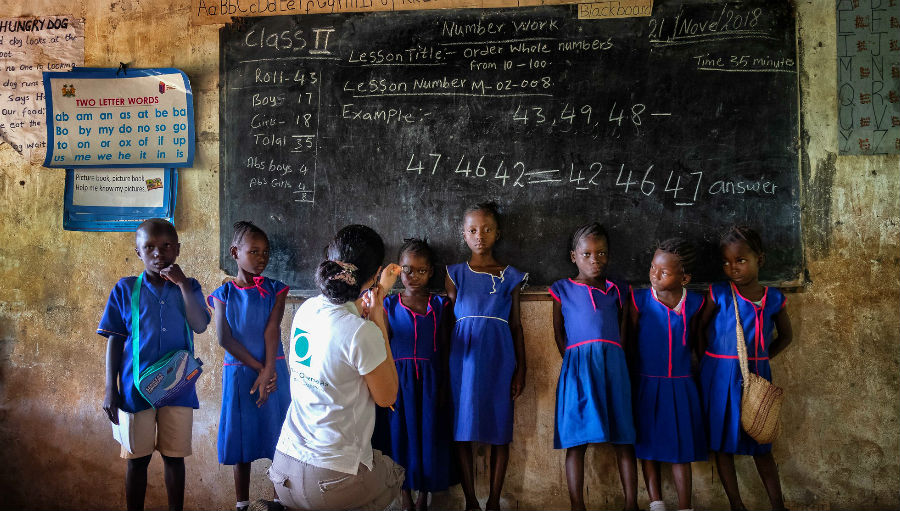Join a powerful, unprecedented alliance for better eye health for all.
Join IAPB-
Choose an alternate language here
 Package of Eye Care Interventions
Package of Eye Care InterventionsThe key recommendation of the World report on vision was to implement integrated people-centred eye care as part of universal health coverage (UHC). This means including eye care in national health plans and essential packages of care. To assist with this process, the World Health Organization (WHO) is developing the Package of Eye Care Interventions (PECI).
The PECI will provide additional guidance on eye care services and approaches. It will determine the effectiveness, cost, workforce competencies and resource requirements for a number of selected eye care interventions. This will enable ministries of health (and other ministries involved in eye care service delivery) to identify, prioritise and budget eye care interventions according to their national circumstances.
The development of the packages will take place over the next 12 months. Crucially, the PECI will also ensure that eye health is further embedded into the WHO’s Thirteenth General Programme of Work and to the achievement of UHC. Once completed, the PECI will be included into the WHO financing mechanisms for UHC, including their OneHealth tool, and linked to all other WHO interventions. In recognition of the growing importance of eye health within WHO, cataract surgery has now been identified by the WHO as one of 20 priority interventions across of the WHO’s programmatic health areas.
To find out more, please click here
To ensure country action on the World report on vision, will be working with the WHO and all of you to coordinate more than 50 national launches across all six WHO regions.
The launches will be critical to the implementation process of the report. They will create unparalleled engagement opportunities with national governments, and will enable key stakeholders in-country to learn about the report, discuss country-specific challenges and agree to key actions. Our hope is that these events will be the start of an ongoing dialogue on eye health.
We are delighted that so many of you have agreed to lead or support a launch. The report has now been launched in the United Nations on 19 November, Australia on 26 November, South Korea on 6 December and Bangladesh on 19 January.
To learn more about the country launches, please email Holly Aindow: [email protected]
2020 is the year of #ActNow. All around the world, eye health will be on the agenda, from Ghana to Bangladesh, to the WHO and United Nations. Next week, I will be attending the World Health Assembly Executive Board meeting, where a resolution on integrated people-centred eye care will be considered for submission to the World Health Assembly.
To hear more about our advocacy work, please sign up to our quarterly advocacy newsletter here: http://eepurl.com/drBHiP or update your preferences and select “Advocacy Updates”.
Image on top: Performing retinoscopy to screen school children in Sierra Leone/ Photo Courtesy: Graham Coates for #VisionFirst photo competition